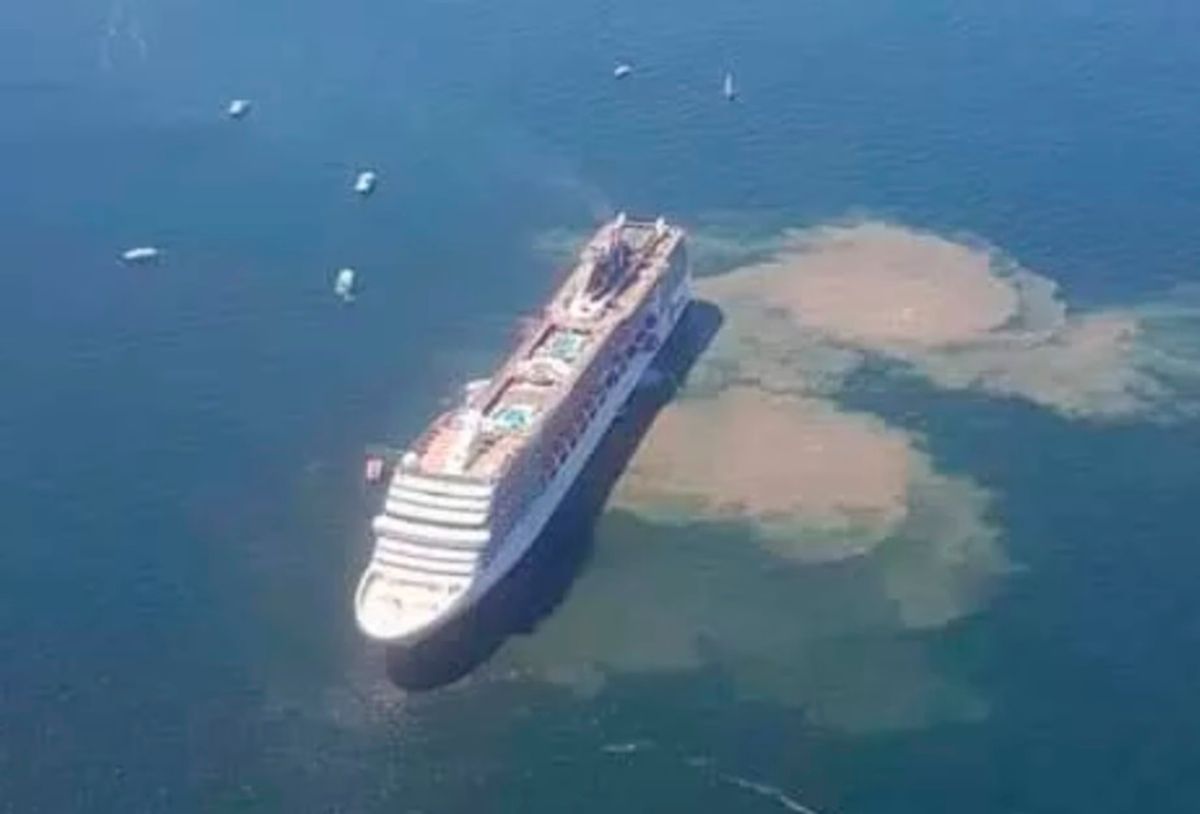Cruise ships provide an opportunity for people to embark on exciting voyages, exploring beautiful destinations all around the world. However, like any vessel, cruise ships produce waste that needs to be properly managed to safeguard the marine environment.
So, when do cruise ships dump waste? Let’s delve into this important topic.
Quick Navigation
The Types of Waste Generated on Cruise Ships

Cruise ships generate different types of waste, including solid waste, sewage, graywater, oily bilge water, and hazardous materials. Solid waste consists of items like paper products, food waste, and plastic containers. Sewage refers to human waste, while graywater refers to water from sinks, showers, and laundries. Oily bilge water is a combination of oil, water, and lubricants, while hazardous materials include chemicals and batteries.
The Regulations and Practices in Place
To ensure responsible waste management, cruise ships adhere to strict international regulations. The International Convention for the Prevention of Pollution from Ships (MARPOL) sets guidelines on waste disposal at sea. Cruise ship companies must comply with these regulations. They are prohibited from dumping most types of waste within a specific distance from the shore.
Waste Management Processes Onboard Cruise Ships
Cruise ships are equipped with advanced waste management systems to minimize their environmental impact. These systems include wastewater treatment plants, solid waste management systems, onboard incinerators, and oil/water separators. The goal is to treat and dispose of waste in a responsible manner, reducing pollution in the marine ecosystem.
Discharging Waste at Sea
Cruise ships can discharge some types of treated waste at sea, but they must follow strict regulations. Graywater can be discharged once it has been properly treated. Sewage must go through an advanced wastewater treatment process before being released into the ocean. This treatment ensures that only high-quality effluent is discharged, reducing harm to marine life and ecosystems.
Visiting Ports and Waste Disposal
When cruise ships visit ports, they have the opportunity to offload waste for proper disposal on land. These ports are equipped with facilities to receive and manage the waste generated by the cruise ships. This practice helps prevent pollution by ensuring waste is disposed of in a controlled
and environmentally friendly manner.
Educating Passengers and Crew
Cruise ship companies play an important role in educating both passengers and crew members about responsible waste management practices. They provide information on recycling, waste separation, and the importance of reducing waste generation. By raising awareness, they encourage everyone onboard to participate in preserving the marine environment.
The Role of Technology in Waste Management
Technology advancements have significantly improved waste management on cruise ships. Advanced wastewater treatment systems ensure that graywater and sewage are treated to the highest standards before being discharged. Waste segregation systems and recycling programs help minimize the amount of solid waste produced and ensure proper disposal of different waste
streams. Cruise ship companies are continually investing in research and development to further enhance waste management practices.
Frequently Asked Questions
When Do Cruise Ships Dump Waste?
Cruise ships are prohibited from dumping waste within certain distances from land and must dispose of it properly in approved facilities when docked.
How Is Waste Disposed Of On Cruise Ships?
Cruise ships utilize onboard waste management systems that include storing solid waste, treating and filtering wastewater, and safely storing hazardous materials for proper disposal onshore.
Do Cruise Ships Dump Sewage Into The Ocean?
Cruise ships are required to follow strict regulations and guidelines for sewage disposal, primarily using advanced wastewater treatment systems or offloading to onshore facilities to prevent pollution and protect marine ecosystems.
Can Cruise Ships Dump Garbage In The Ocean?
Dumping garbage into the ocean is strictly prohibited for cruise ships. They have designated storage areas onboard and adhere to proper waste management protocols, including recycling and safe disposal onshore.
Conclusion
Cruise ships are committed to responsible waste management practices to protect our oceans and marine life. They follow international regulations, utilize advanced waste management systems, and educate their passengers and crew members. With the continuous development of technology and increasing environmental awareness, cruise ships are working towards minimizing their waste footprint and preserving the beauty of our oceans for future generations to enjoy.

